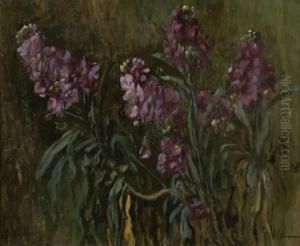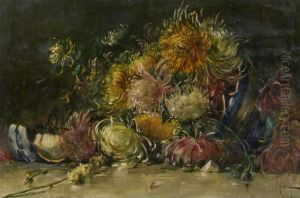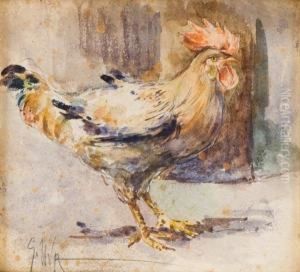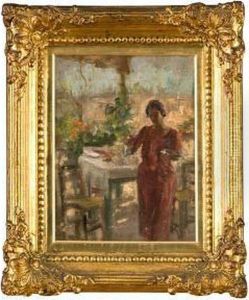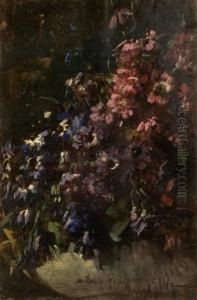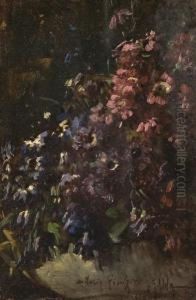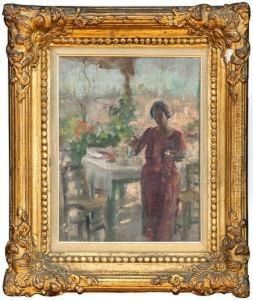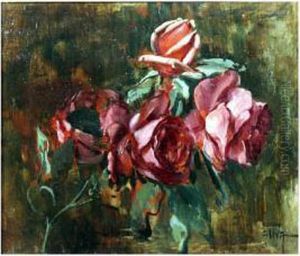Giuseppe Uva Paintings
Giuseppe Uva was an Italian painter, primarily known for his landscape paintings and depictions of rural scenes. Born in 1873 in Italy, Uva's artistic career spanned a period of significant change in the Italian art world, with the transition from traditional academic painting to more modern movements.
Although not as widely recognized as some of his contemporaries, Uva's work was appreciated for its detailed attention to the natural beauty and the bucolic lifestyle of the Italian countryside. His paintings often featured agricultural scenes, pastoral landscapes, and the daily life of peasants, imbued with a sense of realism and a keen observation of light and color.
Throughout his career, Uva remained somewhat traditional in his approach, often resisting the avant-garde trends that were gaining popularity in the early 20th century. Instead, he focused on perfecting his technique in the representation of naturalistic landscapes, a genre that remained popular with many art collectors and the public during his lifetime.
Giuseppe Uva's contributions to Italian art were recognized in his time, and he participated in several exhibitions, where he gained a modest amount of acclaim. His works can be found in various Italian regional galleries and in private collections. He passed away in 1950, leaving behind a body of work that continues to be studied and appreciated by art historians and enthusiasts of Italian landscape painting.
